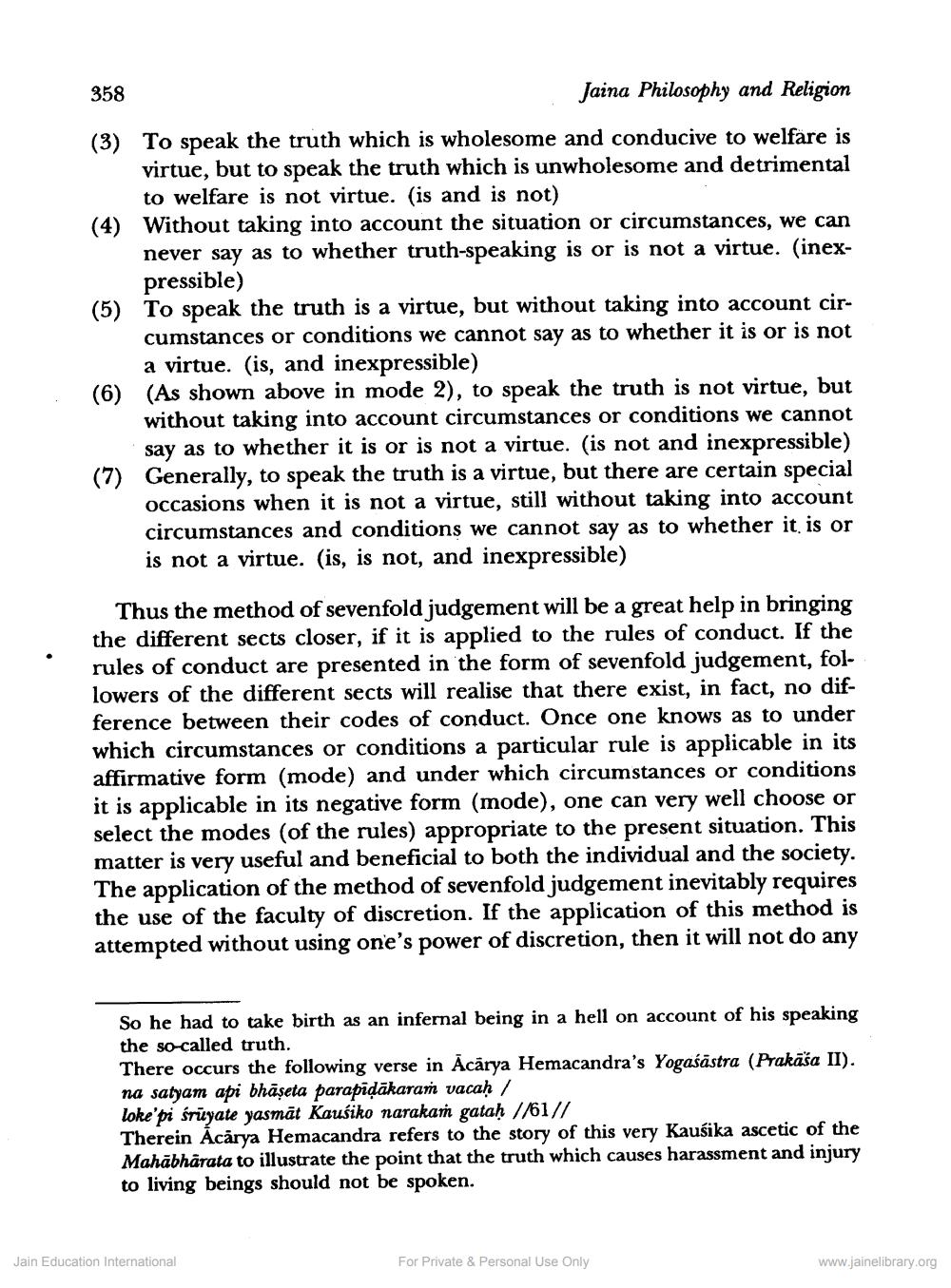________________
358
Jaina Philosophy and Religion
(5)
3) To speak the truth which is wholesome and conducive to welfare is
virtue, but to speak the truth which is unwholesome and detrimental to welfare is not virtue. (is and is not) Without taking into account the situation or circumstances, we can never say as to whether truth-speaking is or is not a virtue. (inexpressible) To speak the truth is a virtue, but without taking into account circumstances or conditions we cannot say as to whether it is or is not
a virtue. (is, and inexpressible) (6) (As shown above in mode 2), to speak the truth is not virtue, but
without taking into account circumstances or conditions we cannot
say as to whether it is or is not a virtue. (is not and inexpressible) (7) Generally, to speak the truth is a virtue, but there are certain special
occasions when it is not a virtue, still without taking into account circumstances and conditions we cannot say as to whether it is or is not a virtue. (is, is not, and inexpressible)
Thus the method of sevenfold judgement will be a great help in bringing the different sects closer, if it is applied to the rules of conduct. If the rules of conduct are presented in the form of sevenfold judgement, followers of the different sects will realise that there exist, in fact, no difference between their codes of conduct. Once one knows as to under which circumstances or conditions a particular rule is applicable in its affirmative form (mode) and under which circumstances or conditions it is applicable in its negative form (mode), one can very well choose or select the modes (of the rules) appropriate to the present situation. This matter is very useful and beneficial to both the individual and the society. The application of the method of sevenfold judgement inevitably requires the use of the faculty of discretion. If the application of this method is attempted without using one's power of discretion, then it will not do any
So he had to take birth as an infernal being in a hell on account of his speaking the so-called truth. There occurs the following verse in Ācārya Hemacandra's Yogaśāstra (Prakāša II). na satyam api bhāṣeta parapīļākaraṁ vacaḥ / Loke'pi śruyate yasmāt Kausiko narakam gataḥ //61// Therein Ācārya Hemacandra refers to the story of this very Kausika ascetic of the Mahābharata to illustrate the point that the truth which causes harassment and injury to living beings should not be spoken.
Jain Education International
For Private & Personal Use Only
www.jainelibrary.org




